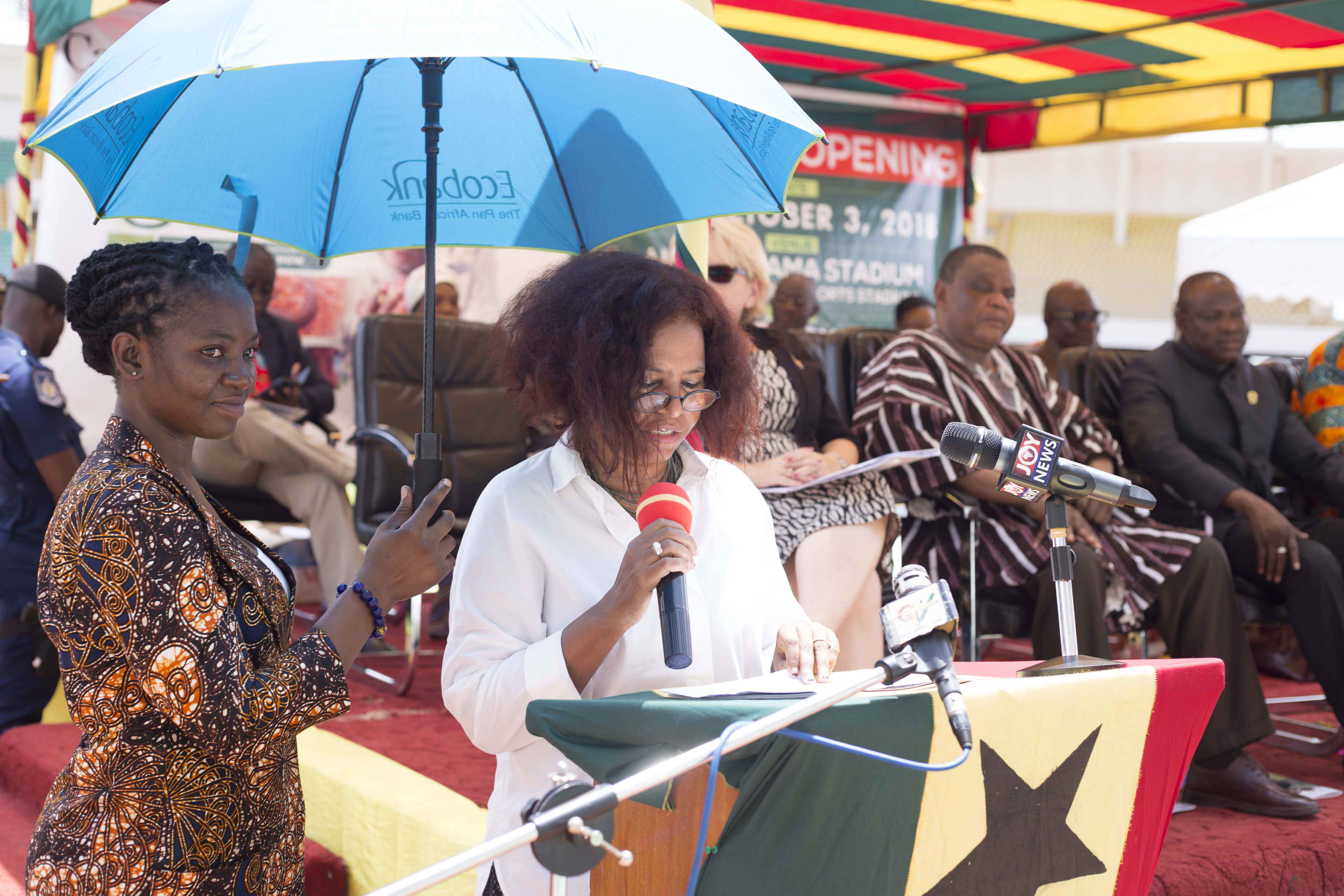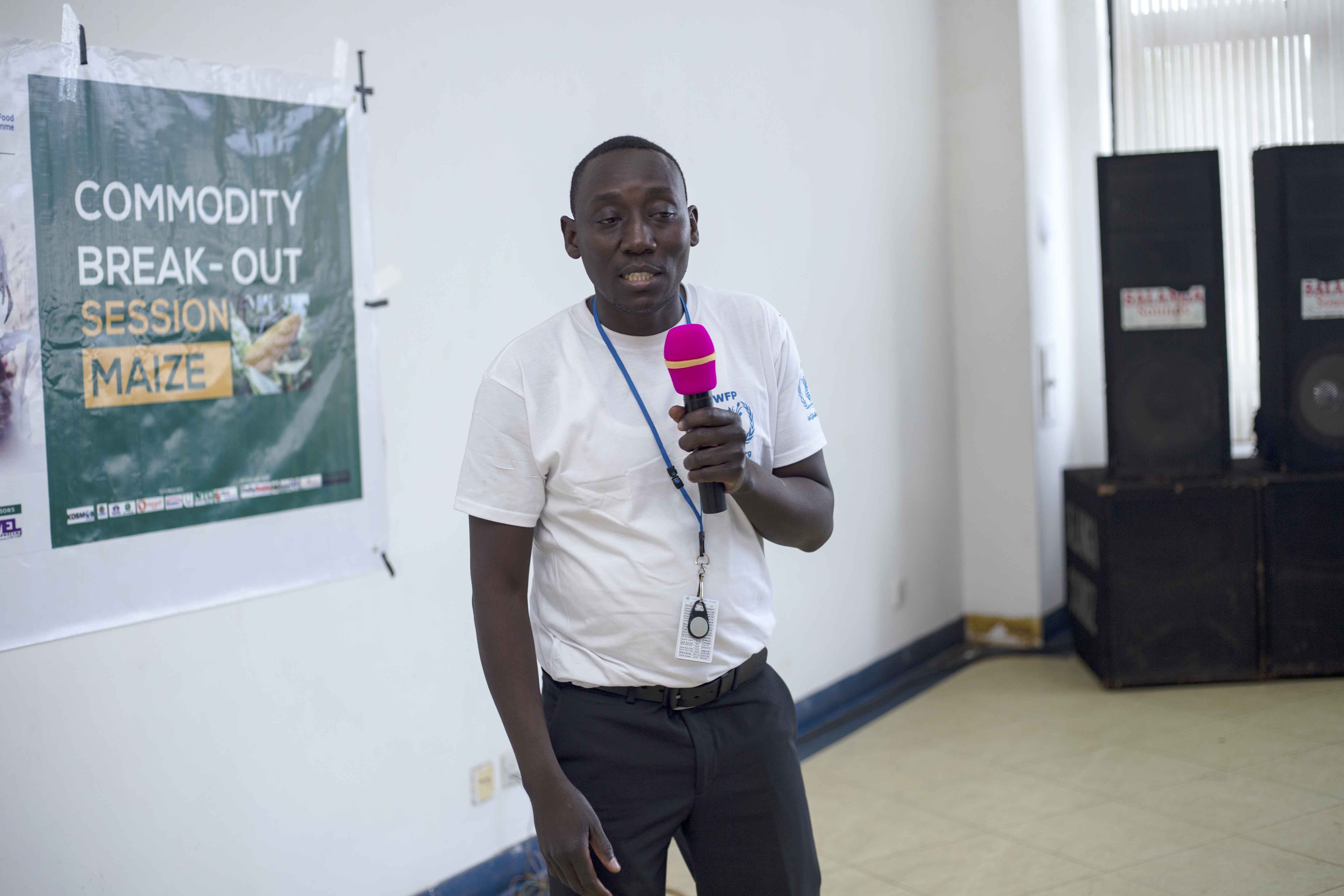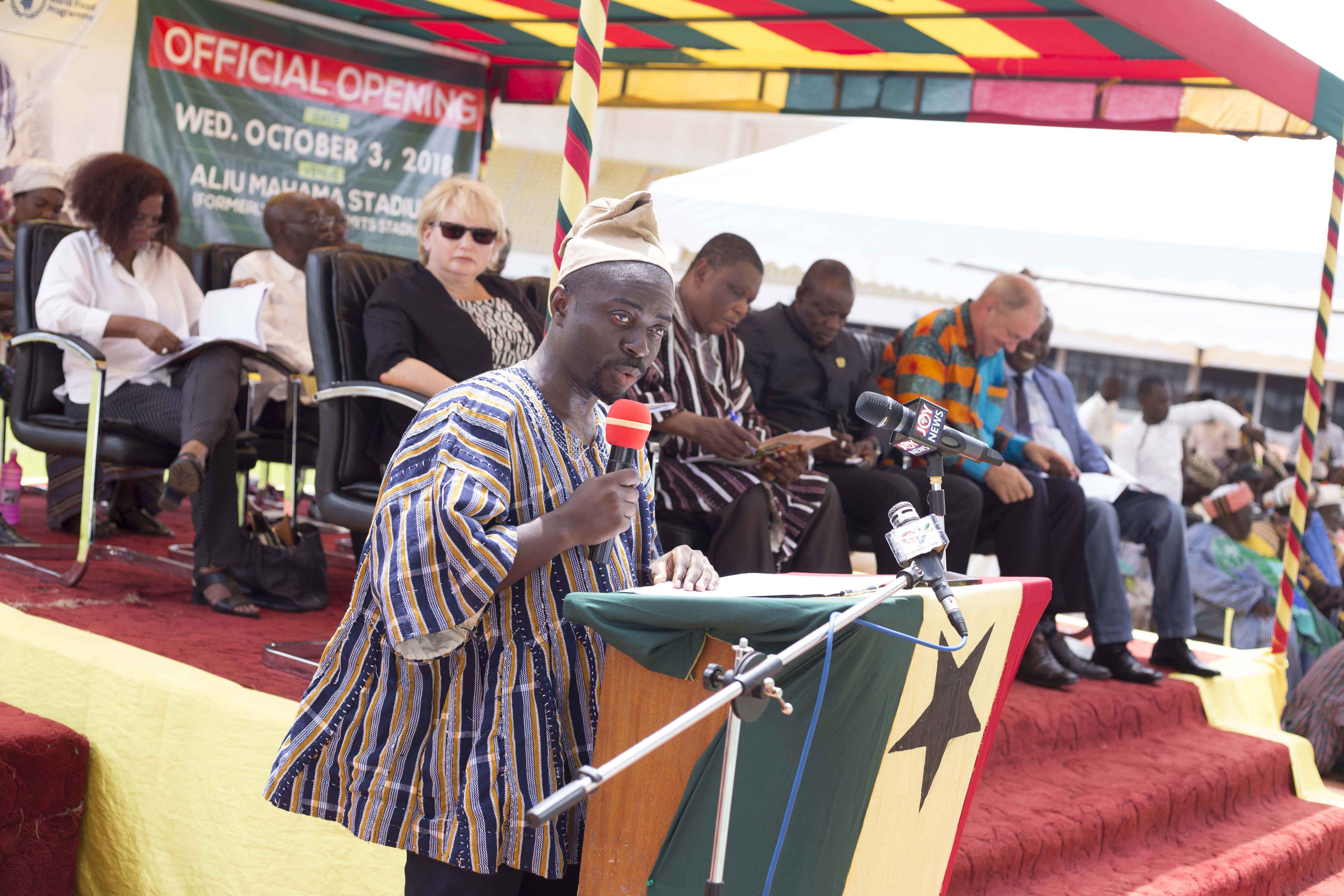
PULL RESOURCES TO BECOME MORE RELEVANT – WFP ADMONISHES SMALLHOLDER FARMERS – AT 8TH PRE-HARVEST AGRIBUSINESS EXHIBITIONS & CONFERENCE
The World Food Programme (WFP) has admonished smallholder farmers in Ghana to pull their resources in the course of their practice so as to raise the quality of their expertise leading to an increase in demand for their services.
Speaking at a session on Custom and Contract Farming during the 8th Pre-harvest Agribusiness Exhibition and Conference held in the Northern Regional Capital of Tamale from October 3-5, 2018, the Sustainable Food Coordinator of World Food Programme, Nanga Kaye stated during a discussion with participants, (mainly the youth) that it was very necessary for them as smallholder farmers to come together so as to get stronger and by so doing be able to create more job opportunities for themselves as customs and contract farmers as well as offer various farming related services to farmers and marketers at a fee with zero to little start-up capital to a point where major technologies can be adopted.
Services that Customs and Contract farmers can offer include, weeding, harvesting, transportation of produce to the market and sales.
Mr. Kaye indicated that services of custom farmers are critical in reducing post-harvest losses and therefore if those offering the said service deliver timely and effectively, there will be a scramble for their services.
Two other important sessions were led by the World Food Programme at the same event. These are, Sustainable Food System, which focused on food safety, proper warehousing and food storage methods and the Commodity session with focuses on soybean, rice and maize.
For the Sustainable Food System session, farmers were advised on the need to come together as players in agribusiness so as to be in a good position to meet the huge logistical demands of the industry. This is necessary because little will be achieved in the industry if the appropriate logistical and supply chain systems are not in place.
The challenge was thrown to them to stop at nothing until they have at least a facility for storing a hector of grains. This is because with a storage facility, the phenomenon of post-harvest losses can be drastically reduced, the quality of grains can be maintained and the right value can be attained for produce.
The third session brought together experts mainly in Rice, Soybean and Maize productions to share ideas on best practices that will lead to high yields and the quality of grains.

In an address during the opening of the Exhibition and Conference, the Country Director of the WFP, Mrs Rukia Yacoub expressed the Programme’s delight at using a platform of this nature to support smallholder farmers who produce the majority of the food consumed yet remain among the most food-insecure livelihood groups in Ghana.
She enumerated the Programme’s plans and hoped that ultimately, it would help agro-processors in Ghana produce for the West Africa sub-region and other markets. This according to her will mean more markets for smallholder farmers’ produce, more income and better opportunity for them to extricate themselves from food insecurity, malnutrition and poverty.
The World Food Programme is a United Nations Agency presently focusing its support to national governments on Sustainable Development Goal (SDG) 2 – Zero Hunger and SDG 17 – Partnerships globally.
As part of its efforts to achieve this, it partnered with Agrihouse Foundation, a non-governmental organization to organize the Pre-harvest Agribusiness Exhibition and Conference, which aimed at linking smallholder farmers to markets, assisting farmers and agri-businesses to expand their businesses before and after harvesting, helping farmers adopt best practices and creating an effectual interactive avenue to enable businesses share innovative ideas and partner for progress.

This year’s event brought together about three thousand, one hundred twenty-two (3122) participants, one hundred and forty-four (144) exhibitors and value chain actors in the agriculture sector including farmers, buyers, processors, transporters, input dealers, equipment dealers, financial institutions, research institutions, development partners, policy makers, Government officials, among others. The aim was for them to discuss and come up with practical ways by which the sector could be made more attractive and profitable through best practice as well as networking. Partners and sponsors of the 8th Annual Pre-harvest Exhibitions and Conference event included the Ministry of Food and Agriculture, Northern Development Authority, USAID ADVANCE, Yara Ghana, Ecobank, Mel Consulting, Kosmos Energy, Interplast, Dizengoff, RMG, Hatuom Trading and LK International


